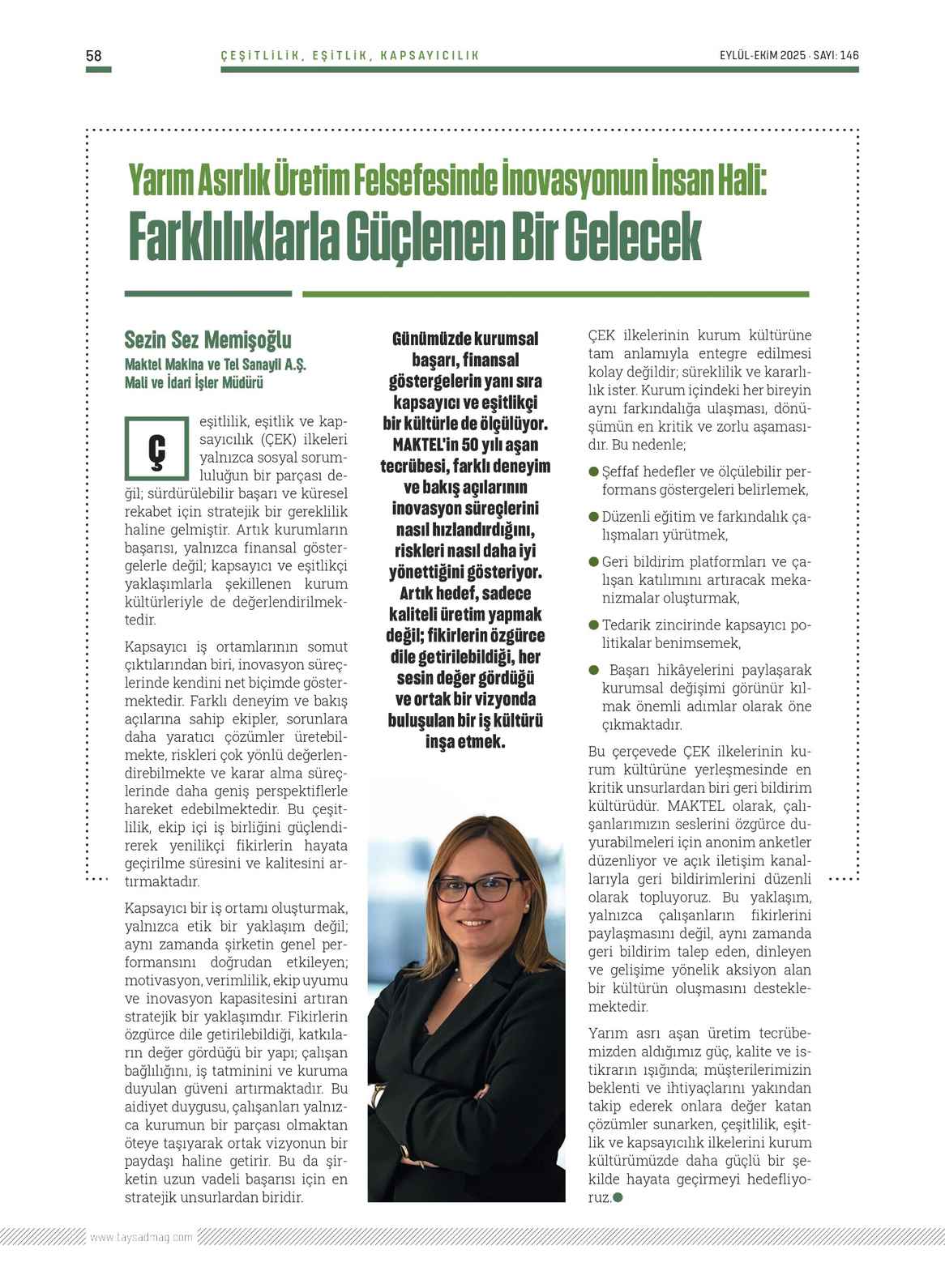In the Light of MAKTEL's Half-Century Experience: Towards the Future with Diversity, Equity, and Inclusion
In today's business world, the principles of diversity, equity, and inclusion (DEI) are not merely a part of social responsibility; they have become a strategic necessity for sustainable success and global competitiveness. The success of organizations is now evaluated not only by financial metrics but also by the inclusive and equitable approaches that shape their corporate culture.
One of the tangible outcomes of inclusive work environments is clearly evident in innovation processes. Teams with diverse experiences and perspectives can generate more creative solutions to problems, assess risks from multiple angles, and make decisions with broader perspectives. This diversity strengthens team collaboration, enhancing the speed and quality of implementing innovative ideas.
Creating an inclusive work environment is not only an ethical approach but also a strategic one that directly impacts a company's overall performance by increasing motivation, productivity, team cohesion, and innovation capacity. A structure where ideas are freely expressed and contributions are valued fosters employee engagement, job satisfaction, and trust in the organization. This sense of belonging transforms employees from mere parts of the organization into stakeholders in a shared vision, which is one of the most strategic elements for a company's long-term success.
Embedding DEI principles fully into corporate culture is not easy; it requires consistency and commitment. Ensuring that every individual within the organization reaches the same level of awareness is the most critical and challenging phase of this transformation. Therefore:
-
Setting transparent goals and measurable performance indicators,
-
Conducting regular training and awareness initiatives,
-
Establishing feedback platforms and mechanisms to enhance employee engagement,
-
Adopting inclusive policies in the supply chain,
-
Sharing success stories to make corporate transformation visible are key steps that stand out.
Within this framework, one of the most critical elements in embedding DEI principles into corporate culture is a feedback culture. At MAKTEL, we conduct anonymous surveys and maintain open communication channels to regularly collect employee feedback. This approach not only enables employees to share their ideas but also supports the creation of a culture that seeks feedback, listens, and takes action for improvement.
Drawing strength from over half a century of manufacturing experience, guided by quality and stability, we aim to closely follow our customers' expectations and needs, delivering value-added solutions while embedding diversity, equity, and inclusion principles more robustly into our corporate culture.
This article, which focuses on MAKTEL's ÇEK principles, perfectly complements TAYSAD magazine's publications highlighting inclusive approaches in the sector; you can access the magazine by clicking here.
Sezin SEZ MEMİŞOĞLU
Finance and Administrative Affairs Director
Maktel Machinery and Wire Industry Inc.
